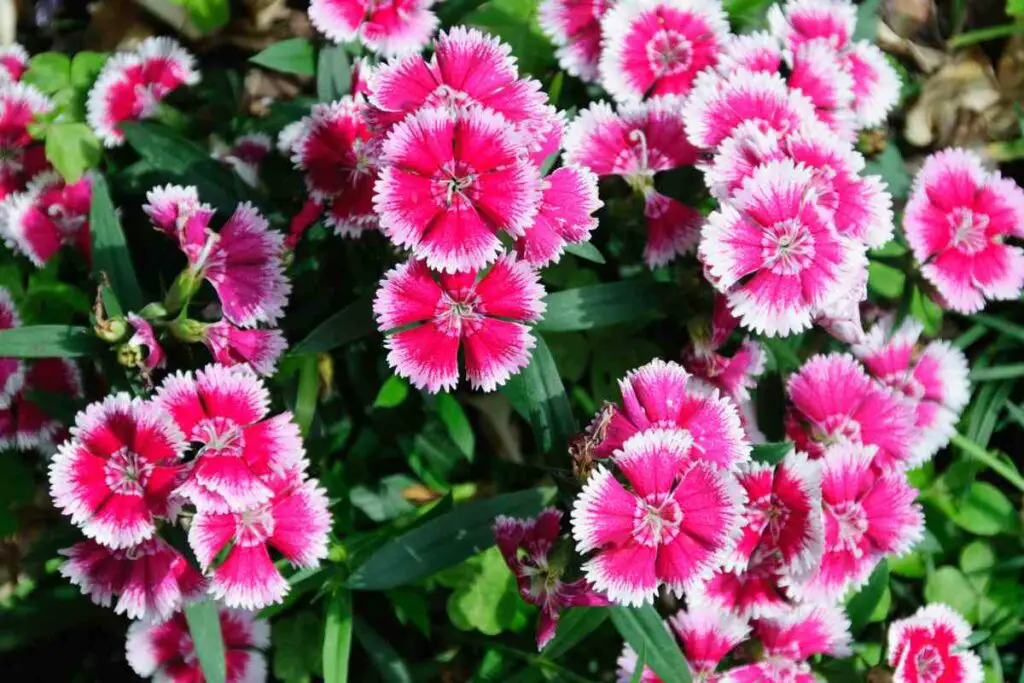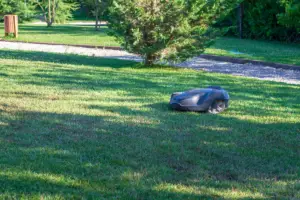If you love the beauty of dianthus flowers but have had problems with deer munching on them in the past, you’re in luck.
Our deer-resistant varieties are perfect for adding color and charm to your garden without the risk of being eaten.
Whether you’re looking for a low-maintenance groundcover, a colorful border plant, or a charming cut flower, we’ve got you covered.

Keep reading to learn more about these amazing plants and how you can add them to your garden today.
Table of Contents
Do Deers Eat Dianthus?
It is possible for deer to eat dianthus, especially if they are hungry and there is a lack of other food sources.
However, some varieties of dianthus are more resistant to deer than others. For example, dianthus species that are more fragrant or have thicker, leathery leaves may be less appealing to deer.
In addition, dianthus plants that are grown in areas with a lot of human activity may be less likely to be eaten by deer due to their fear of humans.
If you are concerned about deer eating your dianthus plants, you can try planting deer-resistant varieties or using deer repellents to deter them.
Benefits of Dianthus In Gardens
There are many benefits to growing dianthus in your garden. Some of the benefits include:
- They are easy to care for and maintain.
- They are drought-tolerant and can thrive in dry conditions.
- They have a long blooming period, often lasting from early spring to late fall.
- They have a pleasant fragrance that is attractive to pollinators.
- They come in a range of colors, including white, pink, red, and purple, and can add a pop of color to any garden.
- They are suitable for a variety of garden styles, including rock gardens, cottage gardens, and formal gardens.
- They are deer resistant, making them a good choice for gardens in areas where deer are a problem.
- They make great cut flowers and can be used in bouquets and arrangements.
Overall, dianthus is a versatile and easy-to-grow plant that can add beauty and fragrance to any garden.
Does Dianthus Come Back Every Year?
Some varieties of dianthus are annuals, which means they will only last for one growing season and will not come back the following year.
Other varieties are perennials, which means they will come back year after year. Perennial dianthus plants will typically die back in the winter and re-emerge in the spring.
To ensure that your dianthus plants come back every year, it is important to choose the right variety for your region and provide proper care.
In general, dianthus plants prefer well-draining soil and full sun to partial shade. They also benefit from regular watering, fertilization, and deadheading (removing spent flowers).
By providing the right growing conditions and proper care, you can encourage your dianthus plants to thrive and return year after year.
Conclusion
In conclusion, deer-resistant dianthus is a great choice for gardens where deer are a problem.
These hardy and easy-to-grow plants offer a range of benefits, including long blooming periods, drought tolerance, and a pleasant fragrance that is attractive to pollinators. With a variety of colors to choose from and the ability to thrive in a variety of garden styles, dianthus is a versatile and charming addition to any garden.
Whether you’re looking for a low-maintenance groundcover, a colorful border plant, or a charming cut flower, deer-resistant dianthus is an excellent choice.
- How to Build a Planter Box for Bamboo: A Step-by-Step Guide

- Can Robotic Lawnmowers Handle Steep Slopes?

- Do You Need a Specific Lawn for a Robotic Lawnmower? Expert Advice

- Are Robotic Lawnmowers Safe for Pets and Children? Safety Features of Robotic Lawnmowers

- Why Use Robotic Lawnmowers? Advantages of Using a Robotic Lawnmower

- Is the GARDENA SILENO City 300 Cordless or Corded? A Clear Answer














